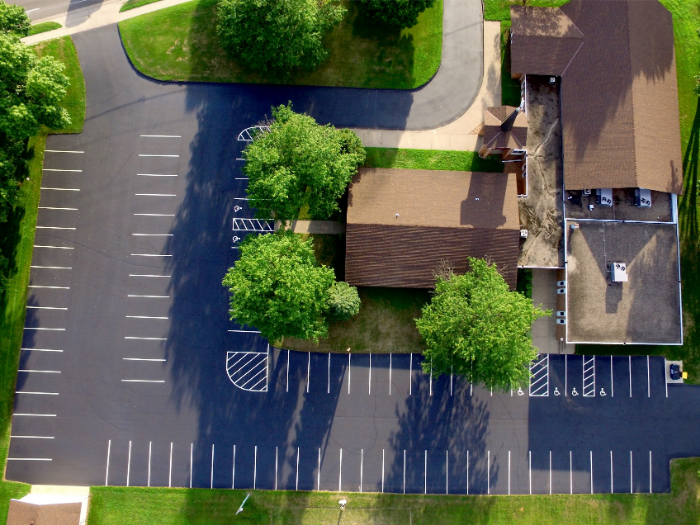Comparing Asphalt Sealants: Which Sealcoating Option Is Right for Your Pavement?
The Variety of Asphalt Sealants
It is important to understand that there is a wide range of asphalt sealants on the market today. There are many kinds of sealants and many ways of boosting their performance (or compromising it). Most contractors purchase their sealant from a reputable manufacturer. These manufacturers generally provide several ‘blends’ of sealant with varying levels of quality. This means that two competitors can buy sealant from the same manufacturer, but one uses the ‘premium’ blend while the other uses the ‘budget’ blend. None of them may be ‘bad’ but there is a definite good/better/best range.
What makes Jet-Black unique?
The Jet-Black promise is to provide the best possible sealant for your geographic location. We do not cut corners or compromise quality. We have strict quality control standards in place as required and monitored by the national corporate company. A good sealant protects and rejuvenates the asphalt, but some products that may look good at first could actually be destructive to your parking lot or driveway. We understand that the beauty of the sealant is important, but Jet-Black is first committed to the rejuvenation and protection of your investment: your asphalt.
Water based or oil based?
Most major manufacturers do not make an oil-based option because they are problematic and simply inferior. The vast majority of quality driveway and parking lot sealants are all technically water based. The core products of these sealants are from the fossil fuel family tree, but they are emulsified in water. Contractors may play with these words and call their sealant oil based purposefully or mistakenly. Are oil based sealants better? No. They have several deficiencies. To name a few: tackiness, tracking on concrete, easily dissolved by dripping oil and gas, slippery when wet. They are chemically harsh and high in VOC’s so they are banned is some states and may be dangerous to humans and the environment.
What is ‘Watered Down’ sealant?
A high quality sealant requires a specific amount of water to be added to the concentrate. No more, no less. For example, the specs of a good sealant may call for 31% water. An unscrupulous contractor may add 90% to save money. Unfortunately, the average customer wouldn’t know the difference for a matter of months. The trick is that a watered down sealant may look great at first, but the critical chemistry construction of this sealant has been destroyed.
What else is in good sealant?
The key to a quality sealant is not simply a good base product and proper amount of water, but also the addition of vital boosters that some contractors use and some do not. There are a variety of revitalizing additives that improve curing times, short and long term color, flexibility, slip resistance and most importantly, protection and durability.
Thicker or stronger?
While there are inferior sealants that are far too thin, thicker is not fundamentally better. A great sealant and an awful one may have the same consistency. The chemical composition of high quality sealants make it protective, durable, and attractive; but not necessarily ‘thick’. In fact, budget sealants sold in stores may appear thicker because they have a gelatin added to keep the sealant in suspension for shelf life. This gelatin dissipates into nothing after application. Our sealant has clay, latex, boosters and sand added to the superior base product and has the consistency of hand lotion.

